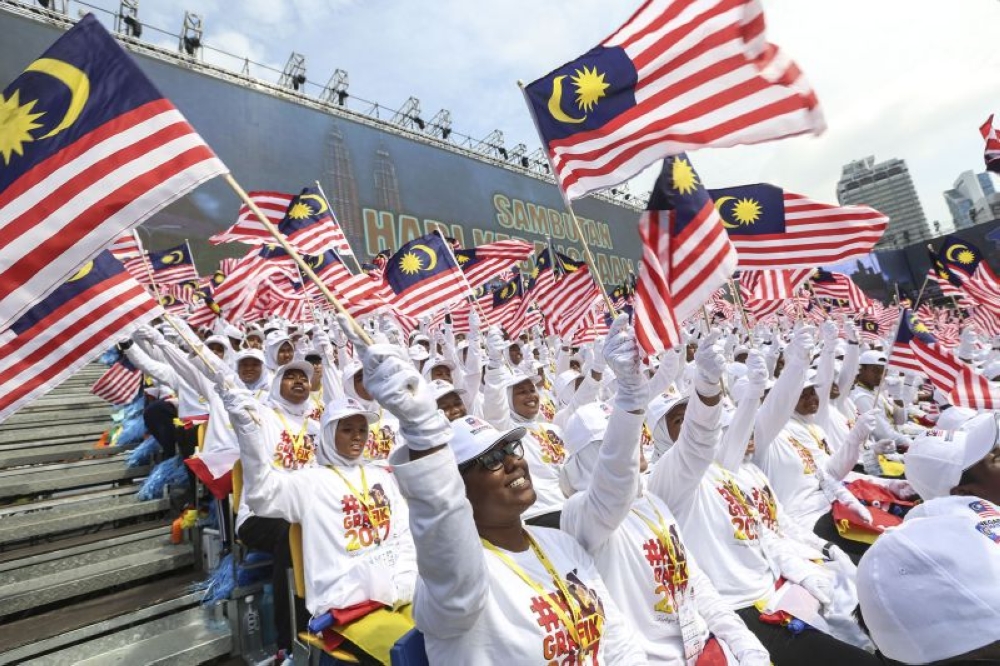
MARCH 28 ― The New Economic Policy (NEP) is a contentious matter for Malaysia and her citizens. Certain parties have adopted the policy as evidence of promoting and supporting a populist agenda, and others accuse the policy of obliterating the rights of minority groups in the country. What was created to empower an ethnic group that was economically backwards has been abused, vilified and left for us to interpret as we will.
I’ve been talking to a friend, Christopher Choong, who is now pursuing his postgraduate studies. (My studies? I started. Then it went down the toilet.) He had reached out to me to assist him with interviews in the East Coast, and then posed this situation to me: whether I knew or had an inkling that the NEP could have been drafted by an elite group of policy makers and economists, which may have certain blind spots in how the policy addressed certain demographics, including yes, very poor Malays and Bumiputera. That one of the architects of the NEP was Norwegian ― Just Faaland ― who was brought to Malaysia in 1969 while he was serving as Director of the Harvard University Malaysia Advisory Group, to advise the Government of Malaysia in the area of socio-economic planning ― could his and colleagues’ contributions may have excluded certain groups in the country?
This column today is an excerpt from our virtual meetings, and both of us would like to apologise for not recording our chats properly. High tech recorders and mobile phones are not something adults our age know how to deal with!


DZ: Christopher, can you elaborate on what you meant by the above? I have heard of a foreign expert being part of the drafting of the NEP but your revelation will be meaningful to Malaysian readers. Could Faaland’s background and that particular era in Malaya, have sidelined Malaysians?
CC: I’m not sure about Faaland specifically, but the influence of foreign advisors in drafting the NEP and their lack of background knowledge was something criticised by Syed Hussein Alatas in his lesser-known commentary on the Second Malaysia Plan (which first outlined the NEP). I don’t think it’s about whether these advisors were foreign or local, but how their elite standpoint, shaped by colonial power structures and relations at that time, had pushed for certain ideas of progress and development, and closed off other alternatives. For example, the architects were all... elite men? So, I’m curious, Dina, as a Malay woman, what have been your own experiences with the NEP?
DZ: As a Malay woman who learned about the NEP in her 20s, the policy was a curious one which urged me to question not just my privilege as a Malay woman, but privilege and class in the country. It was during university that my non-Malay friends discussed this with me, and after a time learning and letting this sink into my head (I was very clueless in school), and then seeing my friends working at all sorts of odd jobs to float financially during uni made me realise that this (policy) was an isolating and insular ‘thing.’ Mind you, most of my university friends and I worked at these part time jobs, yes, even the trust fund babies, but when I compared my non-Malay friends working and studying at such a frenetic pace to the government scholars and trust funds kids who bided their time as they had an allowance and a job/inheritance back home to fall back on, I thought this was unfair. Mind you, I was quite dense and not as politically aware in my 20s as I am now (this is subjective as well) and I didn’t have the language nor the tools to articulate this injustice. However, I did see that we Malaysian students were racially fragmented, and while we joked around, helped each other with our homework and hung out during our religious occasions, there was this silence that we never discussed. It was just there. It was only when I came back, worked, that was when the spectres of the NEP and race loomed large and huge, and made me think about race relations at work and how the policy benefited a certain demographic.
CC: Thanks for sharing, Dina, it definitely resonates with me growing up as a non-Malay as well. Like you said, this policy "thing” can feel rather insular and detached, if not paired with more stories of what it means to our everyday life, all the good, bad and ugly. Having said that, I have also been collecting some stories of how the NEP has contributed to social mobility and well-being for poor households, which has helped me to appreciate why the policy continues to have broad-based support despite its many issues and gaps. I remember in some of my past interviews, when we talked about the NEP, it did come across as something rather abstract, but the conversations became more relatable and "real” the moment we talked about MARA scholarships, Amanah Saham Bumiputera, the role of GLCs and all that.
DZ: I recently met with a man of means and vision who asked me how to improve Malaysia. Despite the many handouts, government agencies, allocations, many Malaysians are still poor, undereducated and living in poor conditions. This is everywhere, including Kuala Lumpur. My humble answer would be that one approach would be the development model, where public-private partnerships come into play, and that selected international NGOs can work together with the Government. I know the UN is active in Malaysia, but perhaps more can be done, especially with big business involved.
CC: Big business has always been a key feature of the NEP, an anchor of sorts. If you look at things like vendor development programmes, procurement strategies or an earlier notion of "konsep payung”, the approach has always been based on the idea of creating a Bumiputera capitalist class who can provide economic opportunities for smaller Bumiputera enterprises, contractors and workers. This means that the model is designed with a pyramidal structure in mind, you need big businesses to help the smaller ones. But this comes with its own set of contradictions, and suggests that the inequalities we’re seeing today are intrinsic to the policy design, not entirely accidental. That’s why I’m not really sure about the big business model, but if we are talking about an alternative that cares about tackling worsening inequalities, then perhaps we should ask if there is another way to do this?
DZ: And what would that model look like? Meritocracy? Doing away with pro Bumiputera policies in business, education?
CC: These are issues that I’m still thinking through... but it’s unfortunate that meritocracy is often portrayed as the antithesis to affirmative action, as though beneficiaries of Bumiputera policies were awarded solely because of their group membership and not merit. But the intention of affirmative action is precisely the reverse, to help Bumiputeras who, despite their "merits” and "deservingness”, are disadvantaged by their group membership. Think of rural Malays who couldn’t penetrate into business and commerce due to racialisation of credit markets and supply chains, or privilege of certain self-presentation and way of life in the development of social and cultural capital. This is not to deny that there have been gross abuses and elite capture of Bumiputera programmes, but criticisms of these are often lumped together with more generalised stigma surrounding any form of affirmative action. So, rather than saying that race-based affirmative action as a principle is flawed, perhaps a more productive approach is to ask what aspects of Bumiputera policy are problematic and what not, and we go from there.
DZ: Now, some of the things we talked about is the predicament of the Malays, especially since they are the majority. Are we being short-sighted focusing on the Malays only when there is a fast-growing income gap among everyone else?
CC: This is a tough one. I have written elsewhere that I think the economic predicament of the Malays cannot be reduced to the material dimension (income gap) alone, but is intertwined with questions of culture and identity. There is a tendency for us to frame these things as either-or, but from the experience of people who suffer from multiple disadvantages of race, class and gender, these conceptual separations don’t mean anything to them. So, maybe the question is not whether we should focus on the Malays, but whether there are still racial processes at work that are discriminating against the Malays (or any other ethnic groups for that matter), and whether these racial processes have become less visible due to their (the Malays) majority status or hidden by the presence of a larger group of middle-class and elite Malays? Addressing these racial issues doesn’t have to come at the expense of dealing with wealth and income inequalities, in fact racial discrimination and class positions often reinforce each other.
DZ: Let’s get back to what you had mentioned earlier, "... how their elite standpoint, shaped by colonial power structures and relations at that time, had pushed for certain ideas of progress and development, and closed off other alternatives.” What are these óther alternatives’? The NEP has transformed over time, and Malaysia has grown from strength to strength. Yet, it has not resolved growing urban poverty, the class and racial gap... what are the things that Malaysia has to look out for in the next one year, and what must this new government do in the next five years (assuming they last this year).
CC: Perhaps this requires a broader conversation, and I am always wary of grand policy alternatives that are not rooted in people’s struggles and experiences. We need to ground these alternatives in the lifeworld of the poor and disadvantaged, who face intersecting racial, gender and class inequalities. This is where I think that we cannot suppress race talks, or dismiss any form of racial discourse as sensitive. I am cognisant of the fact that in the current political climate, these things can be sensationalised and hyper-politicised, but it is precisely in the face of such political instability and attempts to sow racial discord, that we need — more than ever — clarity in thinking and discourse on race-based policies. So, the both of us talking about this is perhaps our attempt at breaking this "silence” that you mentioned earlier? This is perhaps the space that we (not just the government) need to create and foster in the next one-to-five years?
DZ: I think we need a podcast for this! This certainly is a conversation that we must continue, but I also realise you are away at fieldwork. No matter how fractious the debate will be, I feel that all of us, whatever our political ideologies are, must come together to have a hard discussion about meritocracy, race relations, as I see that it’s not going to get any better for anyone, including our children and theirs in the future.
By sharing our humble thoughts in this column, we hope that Malaysians will join in to discuss what the NEP means to them in the future. Christopher and I are hoping that we can have this chat in the future, but it all depends on our schedules and fieldwork.
* This is the personal opinion of the writer or publication and does not necessarily represent the views of Malay Mail.
You May Also Like

